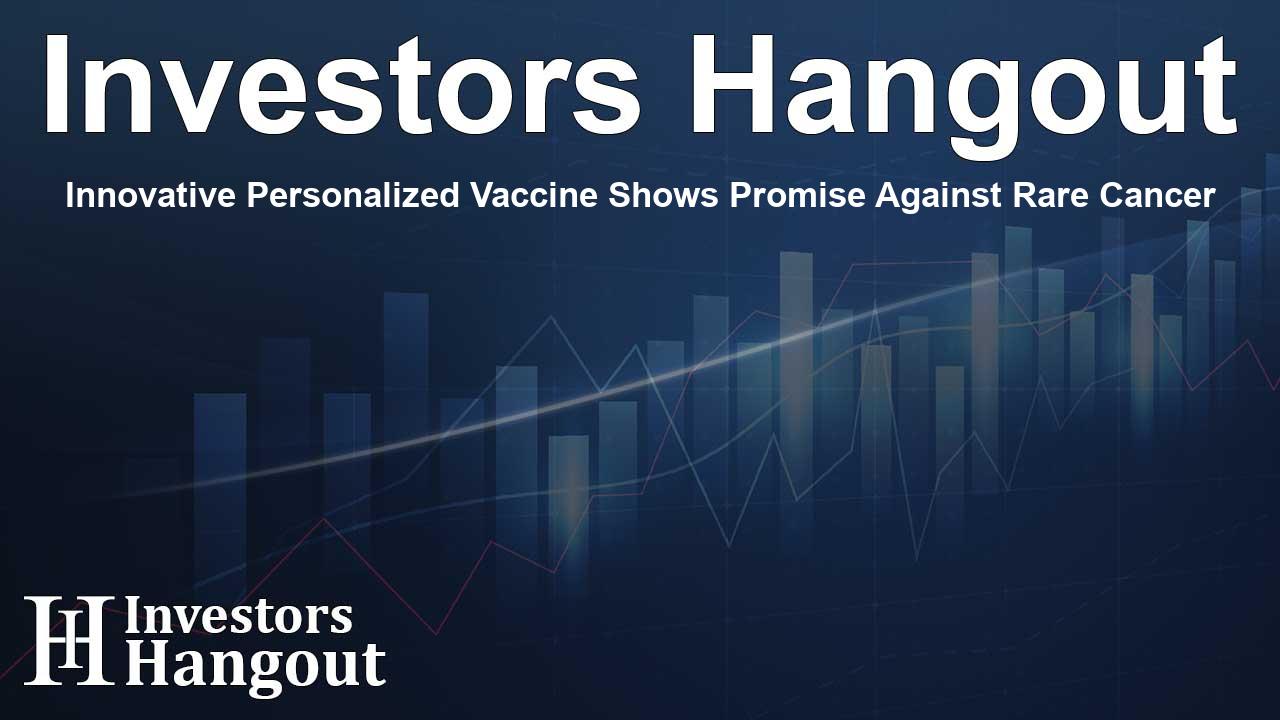Innovative Personalized Vaccine Shows Promise Against Rare Cancer

Promising Developments in Cancer Treatment
Researchers from City of Hope and The University of Texas M.D. Anderson Cancer Center have made remarkable strides in treating lymphoplasmacytic lymphoma—an uncommon and slowly progressing form of blood cancer. Through a Phase 1 trial, a personalized vaccine has demonstrated both safety and efficacy in extending the time before patients experience severe symptoms that necessitate chemotherapy.
Understanding Lymphoplasmacytic Lymphoma
Lymphoplasmacytic lymphoma typically involves active monitoring of patients’ symptoms, with a median duration of 3.5 years from diagnosis until noticeable symptoms like fever or weight loss occur. Early intervention strategies are necessary to improve patient outcomes and minimize wait times.
Significant Findings from the Trial
Dr. Larry Kwak, the director of City of Hope’s Toni Stephenson Lymphoma Center, noted that their vaccine effectively almost doubled the average disease-free progression time for participants to just under seven years. This progress highlights the transformative potential of early vaccine interventions in managing lesser-known cancers effectively.
Treatment Safety and Efficacy
The personalized vaccine in clinical trials employed tumor neoantigens, which are patient-specific molecules that stimulate an immune response tailored to the individual. The outcomes were overwhelmingly positive—participants tolerated the treatment without experiencing the adverse effects that typically accompany traditional cancer therapies.
Long-term Results and Expectations
With a median follow-up of 7.5 years, all nine participants maintained stable disease conditions, and over half did not progress to symptomatic states. Dr. Kwak elaborated on the technology utilized, revealing how single-cell sequencing enabled researchers to observe the activation of T cells within tumors, aiding in their destruction.
Future Directions in Research
Notably, the trial indicated that disease progression not only halted in certain cases but that one patient showed a minor decrease in tumor size. The study suggests that combining the vaccine with other treatments, like monoclonal antibodies targeting plasma cells, might prove even more beneficial in future trials.
Looking Ahead
Dr. Kwak and his team aim to develop the next generation of vaccines with plans to transition to an mRNA platform in collaboration with Renhaim Inc. This evolution signifies a shift in how vaccines can be produced and enhanced, following years of innovative research since the initial DNA-based iterations.
A Legacy of Cancer Research
Dr. Kwak's dedication to advancing cancer treatments spans over three decades, leading to breakthroughs in immunology and personalized medicine. He gained recognition from TIME magazine for his contributions, indicating the importance of his work in this critical field.
Key Historical Insights
The foundation of this research was built upon previous studies, including a groundbreaking protein-based vaccine for follicular lymphoma published in the Journal of Clinical Oncology. This earlier work laid essential groundwork for the current advancements seen in lymphoplasmacytic lymphoma treatment.
City of Hope's Ongoing Mission
Established in 1913, City of Hope's mission revolves around providing hope to those affected by cancer and advancing treatment options. As one of the largest cancer research and treatment organizations in the U.S., their commitment to discovering breakthroughs in cancer therapies continues to be the focal point of their work.
Community Engagement and Support
City of Hope is dedicated to improving patient care while also developing innovative therapies through extensive research. Their efforts include expanded facilities and treatment networks across several major cities, continually striving to redefine cancer care and research.
Frequently Asked Questions
What is lymphoplasmacytic lymphoma?
Lymphoplasmacytic lymphoma is a rare and slow-growing type of blood cancer that affects lymphocytes, leading to complications that may require treatment.
How does the personalized vaccine work?
The vaccine uses patient-specific components to stimulate an immune response against the tumor, particularly by targeting tumor neoantigens.
What were the key findings from the Phase 1 trial?
The trial indicated that the personalized vaccine nearly doubled the average disease-free progression time up to nearly seven years without severe side effects.
What future steps are planned for the vaccine?
Researchers aim to adapt the vaccine to an mRNA platform and combine it with other therapies for enhanced efficacy in treating lymphoplasmacytic lymphoma.
Why is early intervention important?
Early intervention can significantly prolong disease-free periods and improve the quality of life for patients by delaying the progression to symptomatic states.
About Investors Hangout
Investors Hangout is a leading online stock forum for financial discussion and learning, offering a wide range of free tools and resources. It draws in traders of all levels, who exchange market knowledge, investigate trading tactics, and keep an eye on industry developments in real time. Featuring financial articles, stock message boards, quotes, charts, company profiles, and live news updates. Through cooperative learning and a wealth of informational resources, it helps users from novices creating their first portfolios to experts honing their techniques. Join Investors Hangout today: https://investorshangout.com/
Disclaimer: The content of this article is solely for general informational purposes only; it does not represent legal, financial, or investment advice. Investors Hangout does not offer financial advice; the author is not a licensed financial advisor. Consult a qualified advisor before making any financial or investment decisions based on this article. The author's interpretation of publicly available data shapes the opinions presented here; as a result, they should not be taken as advice to purchase, sell, or hold any securities mentioned or any other investments. The author does not guarantee the accuracy, completeness, or timeliness of any material, providing it "as is." Information and market conditions may change; past performance is not indicative of future outcomes. If any of the material offered here is inaccurate, please contact us for corrections.